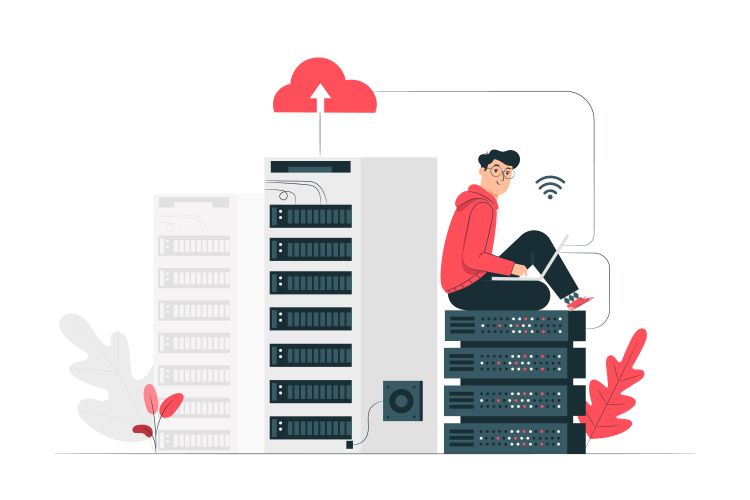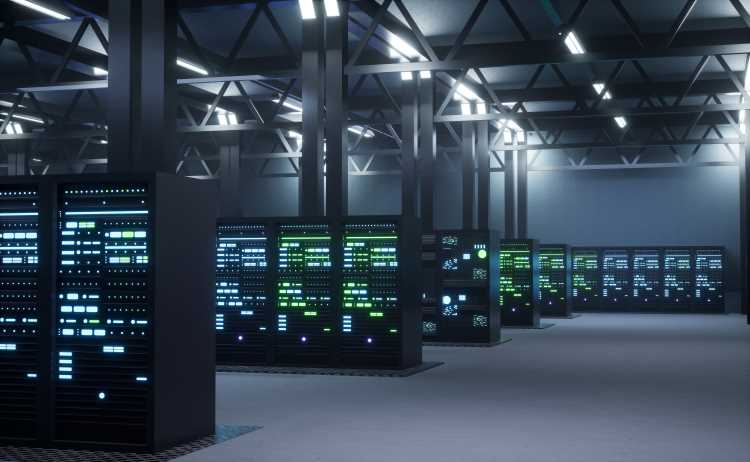Top 5 Reasons Why Websites Pick Virtual Private Servers
Virtual Private Servers (VPS) are typically selected by website owners experiencing medium-level traffic that surpasses the capacities of shared hosting plans but doesn’t yet require the extensive resources of a dedicated server.
VPS hosting providers generally offer multiple plans to accommodate various business needs. For example, at Binary Racks, we provide a range of VPS plans designed to scale seamlessly with your website as it grows, ensuring you have the resources you need when you need them.

What is a Virtual Private Servers (VPS)?
A VPS is a type of multi-tenant cloud hosting. Through the internet, a cloud or hosting provider makes virtualized server resources available to an end-user.
Each VPS is installed on a physical computer that is managed by a cloud or hosting company and can host several VPSs. While the VPSs share a hypervisor and underlying hardware, each VPS has its own operating system (OS), programs, and a part of the machine’s resources (memory, compute, etc.).
In this article, we’ll discuss why you should pick a VPS over other types of hosting. Let’s get started!
Why Websites Pick Virtual Private Servers
1. Reliable Performance
If you have a modest website, a shared hosting plan may be sufficient. But, if your marketing team regularly adds new pages and content to your website, or if your website has sudden traffic surges, VPS hosting may be a better alternative. VPS servers can manage high traffic loads as well as big and resource-intensive websites without breaking a sweat. No more worrying about experiencing downtimes or losing potential clients.
2. Independent and Excellent Allocation of Resources
You are allowed to use the dedicated resources provided by a VPS in any way you see fit. Another significant difference between this type of service and shared hosting is limited control over how resources are distributed.
When you shift towards a VPS, you’ll know precisely what resources you have and will be able to utilize them entirely for your content while also managing them as required. This also makes it much easier to host many websites on the same subscription.
3. Lower Costs
With the advent of the Internet, small companies no longer had to bear the burden of owning and operating their servers. They may rent just the appropriate amount of server computing demands from a VPS service provider by renting out just the correct number of server computing needs. Renting a VPS allows you to maximize server usage because you just rent what you require.
A virtual private server (VPS) is, as the name indicates, a private server – your server – devoted to your needs. It is no different than owning your server, except that you do not have to shell out money for the maintenance of a physical server.
4. Enhanced Security
Security is a significant concern for all firms that go online. This is the most common argument raised by businesses when considering outsourcing their server needs to a third party. A VPS lets you keep your data and source files behind a protected partition inaccessible to other clients of your service provider. VPS security is equivalent to owning your dedicated physical server but without the expense.
5. Incredible Scalability
A VPS is meant to adapt to the natural ebb and flow if your firm has taken off or if you expect to expand within the following year.
As a result, with VPS Hosting, you can start as little as your business can afford and scale up as your organization grows.
Related: Full Guide to Virtual Private Servers
How Does Virtual Private Servers Hosting Work?
A server is a powerful computer where your web host stores the files and databases necessary for your website.
When an online visitor wants to access your website, their browser sends a request to your server, which then transfers the required files over the internet.
VPS hosting provides a virtual server that mimics a physical server, but the machine is actually shared among multiple users.
Using virtualization technology like a hypervisor, your hosting provider installs a virtual layer on top of the server’s operating system (OS).
This layer divides the server into partitions, allowing each user to install their own OS and software.
A Virtual Private Server (VPS) is both virtual and private, giving you complete control. It is isolated from other server users at the OS level.
This is similar to creating partitions on your own computer to run multiple operating systems (e.g., Windows and Linux) without rebooting.
With a VPS, you can set up your website within a secure container with guaranteed resources (memory, disk space, CPU cores, etc.) that you don’t have to share with others. VPS hosting offers the same root-level access as a dedicated server, but at a much lower cost.
Conclusion
When you’re ready to dive into VPS hosting, one of your primary concerns may be pricing. True, a VPS is usually more expensive than shared hosting. However, the dividends will more than pay off the cost difference in the long run.
Are you looking for the best virtual private server hosting provider in the UK? Binary Racks can help! Our UK-based data hosting agency provides clients with leading-edge software programs and security enhancement plans. Get in touch with us today to learn more!
Frequently Asked Questions about Virtual Private Servers
What is the purpose of a Virtual Private Server?
A Virtual Private Server (VPS) provides a dedicated, isolated environment on a shared physical server, offering more control, security, and performance than shared hosting.
Why do you need a VPS server?
You need a VPS server if your website has outgrown shared hosting, requires dedicated resources, higher security, and the ability to install custom software and applications.
What is the disadvantage of a Virtual Private Server?
The main disadvantages of a VPS are higher costs compared to shared hosting and the need for more technical knowledge to manage and maintain the server.
Is VPS better than web hosting?
VPS is better than shared web hosting if you need more control, resources, and security. However, it’s more expensive and requires more technical






